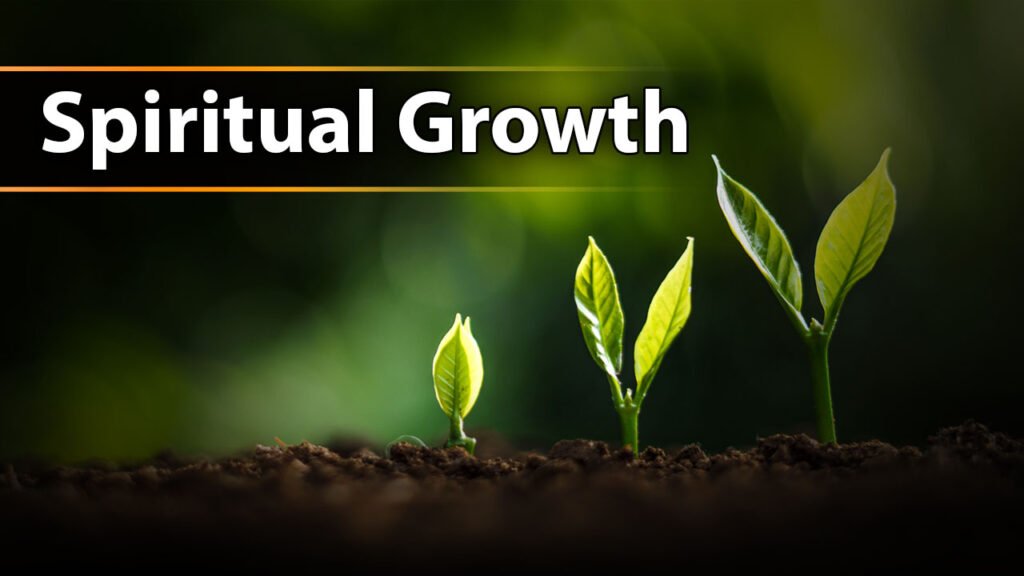Introduction to 7 Keys for Spiritual Growth
Embarking on a journey of spiritual growth can be one of the most rewarding experiences in life. It’s a path that leads to greater self-awareness, inner peace, and a deeper connection with the world around us. But where do you start? How can you nurture your spiritual side and transform your life in meaningful ways? In this article, we’ll explore seven key principles that can help you unlock your spiritual potential and create lasting positive change.
Key 1: Cultivate a Daily Spiritual Practice
Meditation
One of the most powerful tools for spiritual growth is meditation. By setting aside time each day to quiet your mind and connect with your inner self, you can cultivate a sense of peace and clarity that will ripple through all aspects of your life. Start with just a few minutes a day and gradually increase the duration as you become more comfortable with the practice.
Prayer
Whether you follow a specific religion or simply believe in a higher power, prayer can be a powerful way to connect with the divine and express gratitude, seek guidance, or find comfort in times of need. Develop a prayer practice that feels authentic to you, whether it’s reciting traditional prayers or speaking from your heart.
Journaling
Writing down your thoughts, feelings, and experiences can be a profound way to gain insights into your spiritual journey. Consider keeping a spiritual journal where you reflect on your growth, record meaningful experiences, and explore your deepest questions and beliefs.
Key 2: Study Sacred Texts and Teachings
Reading religious scriptures
Diving into the wisdom of ancient texts can provide invaluable guidance and inspiration for your spiritual path. Whether it’s the Bible, the Bhagavad Gita, the Quran, or any other sacred text, regular study can deepen your understanding of spiritual principles and help you apply them to your life.
Exploring philosophical works
Don’t limit yourself to religious texts alone. Philosophical works from various traditions can offer fresh perspectives and challenge you to think deeply about life’s big questions. Explore the writings of great thinkers and see how their ideas resonate with your own spiritual journey.
Attending lectures or workshops
Seeking out opportunities to learn from spiritual teachers and leaders can accelerate your growth. Look for lectures, workshops, or retreats in your area that align with your interests and be open to new ideas and practices.
Key 3: Practice Mindfulness and Self-Awareness
Being present in the moment
Mindfulness is the practice of being fully present and engaged in the current moment. By cultivating this skill, you can reduce stress, increase your appreciation for life, and deepen your spiritual connection. Try incorporating mindfulness into your daily activities, such as eating, walking, or even washing dishes.
Observing thoughts and emotions
Developing the ability to observe your thoughts and emotions without judgment is a key aspect of spiritual growth. This practice can help you gain clarity, reduce reactivity, and develop a greater sense of inner peace. Start by simply noticing your thoughts and feelings as they arise, without trying to change or suppress them.
Developing emotional intelligence
As you become more aware of your inner world, work on developing your emotional intelligence. This involves recognizing and managing your own emotions, as well as empathizing with others. By improving your emotional intelligence, you’ll be better equipped to navigate relationships and life challenges with grace and wisdom.
Key 4: Engage in Service and Compassion
Volunteering
One of the most powerful ways to grow spiritually is by serving others. Look for volunteer opportunities in your community that align with your values and interests. Whether it’s helping at a local food bank, mentoring youth, or supporting environmental causes, giving your time and energy to others can be incredibly fulfilling and transformative.
Random acts of kindness
You don’t need to commit to formal volunteering to make a difference. Practice random acts of kindness in your daily life, such as paying for a stranger’s coffee, leaving an encouraging note for a coworker, or helping a neighbor with a task. These small gestures can create ripples of positivity and deepen your sense of connection with others.
Practicing empathy
Cultivating empathy is essential for spiritual growth. Make a conscious effort to put yourself in others’ shoes, listening deeply and seeking to understand their perspectives and experiences. This practice can help you develop greater compassion and connection with all beings.
Key 5: Connect with a Spiritual Community
Joining a religious group
If you resonate with a particular faith tradition, consider joining a local religious community. Attending services, participating in study groups, and engaging in community events can provide support, accountability, and opportunities for shared growth on your spiritual journey.
Participating in group meditation
Meditating with others can be a powerful experience that enhances your personal practice. Look for local meditation groups or centers where you can join others in silent contemplation or guided practices.
Attending spiritual retreats
Immersing yourself in a spiritual retreat can be a transformative experience that accelerates your growth. Whether it’s a weekend silent retreat, a yoga and meditation getaway, or a longer pilgrimage, these experiences can provide deep insights and renewed inspiration for your spiritual path.
Key 6: Embrace Personal Growth and Transformation
Facing fears and challenges
Spiritual growth often requires us to confront our fears and step out of our comfort zones. Embrace challenges as opportunities for growth, and be willing to face difficult emotions or situations with courage and openness.
Letting go of limiting beliefs
As you progress on your spiritual journey, you may uncover limiting beliefs that hold you back. Work on identifying and releasing these beliefs, replacing them with more empowering and aligned perspectives that support your growth.
Cultivating a growth mindset
Adopt a growth mindset that sees challenges as opportunities and believes in your ability to learn and evolve. This perspective can help you stay resilient in the face of setbacks and maintain a positive outlook on your spiritual journey.
Key 7: Align Your Actions with Your Values
Identifying core values
Take time to reflect on and clarify your core values. What principles are most important to you? What do you stand for? Having a clear understanding of your values can guide your decisions and actions in all areas of life.
Making conscious choices
As you become more aware of your values, strive to make conscious choices that align with them. This might involve changing health, setting new priorities, or making difficult decisions that honor your deepest beliefs and aspirations.
Living with integrity
Integrity is about being true to yourself and your values, even when it’s challenging. Practice living with integrity by keeping your commitments, speaking your truth, and taking responsibility for your actions. This alignment between your inner and outer life is essential for genuine spiritual growth.
Conclusion of 7 Keys for Spiritual Growth
Embarking on a journey of spiritual growth is a lifelong adventure that can bring profound transformation and joy to your life. By incorporating these seven keys into your daily life – cultivating a spiritual practice, studying wisdom teachings, practicing mindfulness, engaging in service, connecting with community, embracing personal growth, and aligning your actions with your values – you can create a solid foundation for ongoing spiritual development.
Read Also: Zodiac Hues: Holi 2025 Astrological Forecast and Fixes
Remember that spiritual growth is a personal and unique journey. Be patient with yourself, stay open to new experiences and insights, and trust in the process. As you continue to nurture your spiritual side, you’ll likely find that your life becomes richer, more meaningful, and more fulfilling in ways you never imagined.
For interesting astrology-related videos, subscribe to us on YouTube
FAQs
- How long does it take to see results from spiritual growth practices?The timeline for experiencing results varies for each individual. Some people may notice changes in their perspective or sense of well-being within a few weeks, while for others, it may take months or even years to recognize significant shifts. The key is to remain consistent and patient with your practice.
- Do I need to follow a specific religion to experience spiritual growth?No, spiritual growth is not limited to any particular religion. While many people find spiritual growth within religious traditions, others pursue a more personal or non-denominational path. The most important aspect is finding practices and beliefs that resonate with you and support your personal growth.
- Can spiritual growth help with mental health issues like anxiety or depression?Many people find that spiritual practices can complement traditional mental health treatments and provide additional tools for managing anxiety, depression, and other mental health challenges. However, it’s important to consult with a mental health professional for proper diagnosis and treatment.
- How can I maintain my spiritual practice when life gets busy?Start by setting realistic goals and integrating spiritual practices into your daily routine. Even short periods of meditation, prayer, or reflection can be beneficial. Consider combining practices with everyday activities, such as mindful walking during your commute or listening to spiritual teachings during your workout.
- Is it normal to experience doubts or setbacks on a spiritual journey?Absolutely. Doubts, questions, and setbacks are a normal part of any growth process, including spiritual development. These challenges often lead to deeper understanding and stronger convictions. When faced with doubts, approach them with curiosity and openness, and don’t hesitate to seek guidance from trusted mentors or spiritual teachers.

